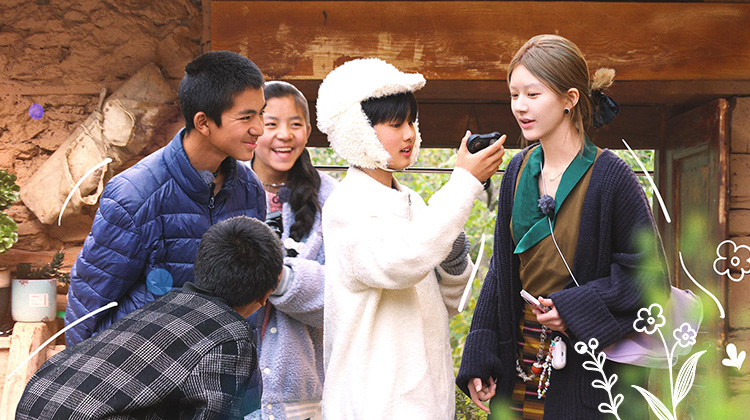 |
Zhao Lusi’s latest reality show Be Myself is still causing a buzz across Chinese social media.
It’s been praised for its rawness and openness, but also heavily criticised for being too staged or emotionally manipulative.
Now, a psychologist from Beijing Normal University has entered the chat—and they’ve got some interesting thoughts.
After watching the show, the unnamed psychologist told Sina Entertainment that emotional expression is key to well-being.
“If negative emotions and discomfort are constantly suppressed, they will only overburden the body,” they said.
Their comments made it to Weibo’s trending list not long after.
Zhao Lusi explores rural life in Western Sichuan throughout the series.
It’s meant to be a journey of self-healing, where she reconnects with nature and herself.
There’s no makeup, no glitz—just her, a small crew, and the fresh mountain air. Sounds relaxing, right?
But Be Myself hasn’t been smooth sailing.
 |
Some of Zhao’s comments in the show have raised eyebrows online.
One major example?
She said she only sleeps two hours a day.
Some netizens were quick to call it a “glorification of overwork,” while others questioned the truth of it altogether.
“No one can live like that,” one Zhihu user wrote.
Her fans? They argued she was just emphasising how hectic her schedule is.
Another moment that stirred the pot was Zhao opening up about her childhood.
She admitted she often felt less loved by her parents compared to her siblings.
 |
While many viewers appreciated her honesty, others saw it as fishing for sympathy.
One Douban comment even called the moment “scripted for drama.”
Then there was the crutch comment. In a light segment, Zhao saw a crutch and asked what it was for.
That led to accusations of insensitivity, with critics asking if she was truly that unaware—or just pretending.
Again, fans rushed to her defence, blaming the show’s editing for making her look clueless.
The show marketed itself as “raw” and “real,” but that claim is being challenged.
 |
Word online says Hunan TV cut around 10 minutes of footage, particularly bits that were seen as controversial.
Critics say this undermines the show’s whole “authenticity” vibe.
Rosy's mental health has also been a major topic. She opened up about her struggles with depression, anxiety, and even memory loss.
While some admired her for raising awareness, others felt the show was using her diagnosis as a marketing hook.
“She should be resting, not filming,” one comment read. But many fans found her vulnerability brave and said it helped reduce stigma around mental illness.
There’s also talk of “poverty tourism.”
Zhao Lusi was shown donating supplies and chatting with villagers, but some viewers thought it felt superficial.
 |
“She’s still a rich celebrity,” said one Weibo post, “it just feels like a PR stunt.”
Still, her supporters haven’t let the backlash go unanswered.
On Xiaohongshu and Weibo, they praised her for speaking her truth and working hard, despite everything.
“She’s not perfect,” one fan wrote, “but who is?”
In response to the storm, some psychologists and celebrities are calling out the harshness of online criticism.
They argue that people often forget the role of editing in shaping what we see.
Others raised concerns about gender bias—asking if a male celebrity would get the same treatment.
Mental health professionals warn that cruel online comments can seriously harm someone already struggling.
 |
A recent Weibo poll found 58% of respondents agreed that Zhao was being judged too harshly.
Only 10% remained neutral.
This reflects a wider shift.
Social media campaigns like “Stop Judging, Start Listening” are pushing for more empathy and less knee-jerk hate online.
They want people to focus more on the bigger picture than tearing individuals apart.
Be Myself may be a reality show, but it’s sparked real conversations—about burnout, vulnerability, and how we treat public figures when they show us who they really are. Whether you love or hate the show, maybe that’s worth something.